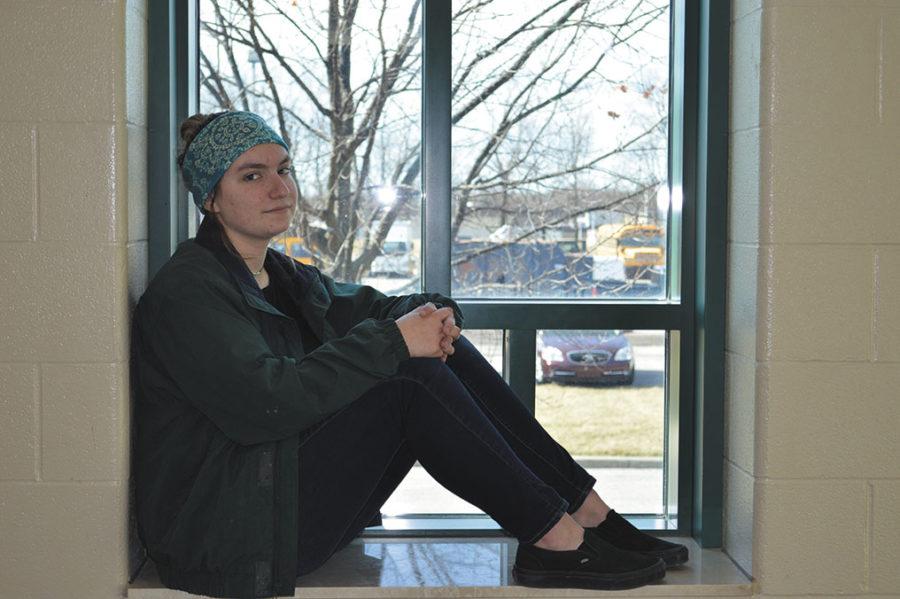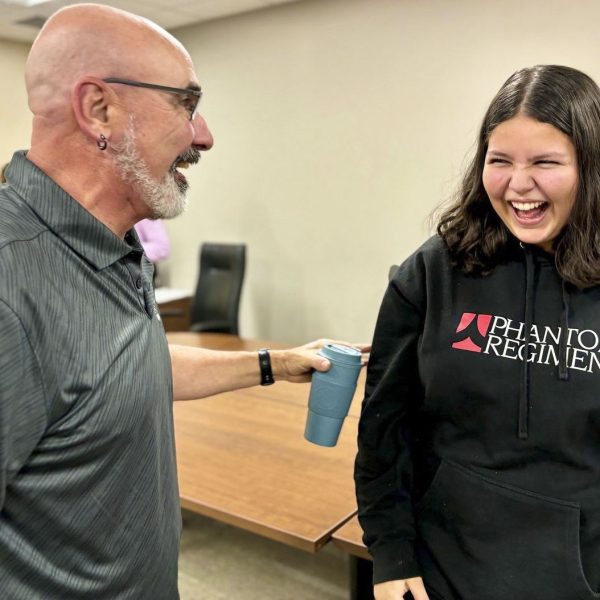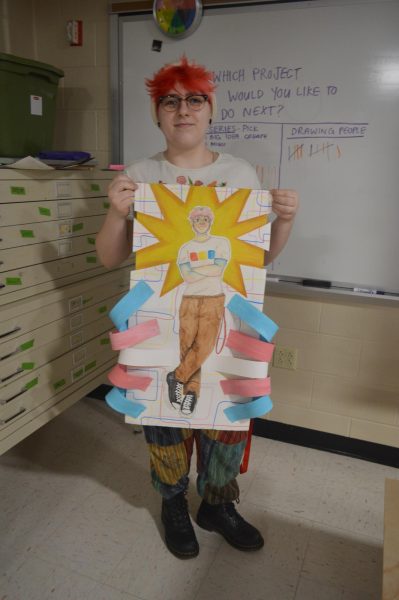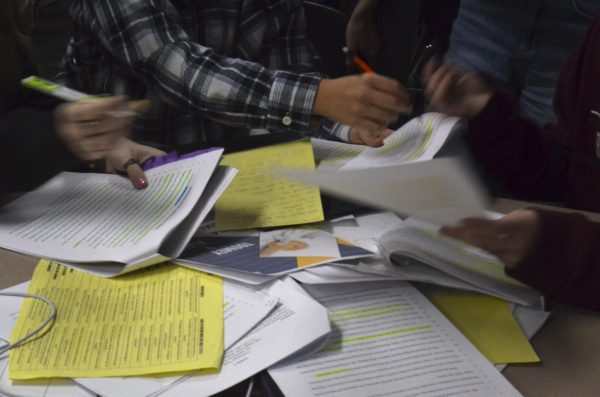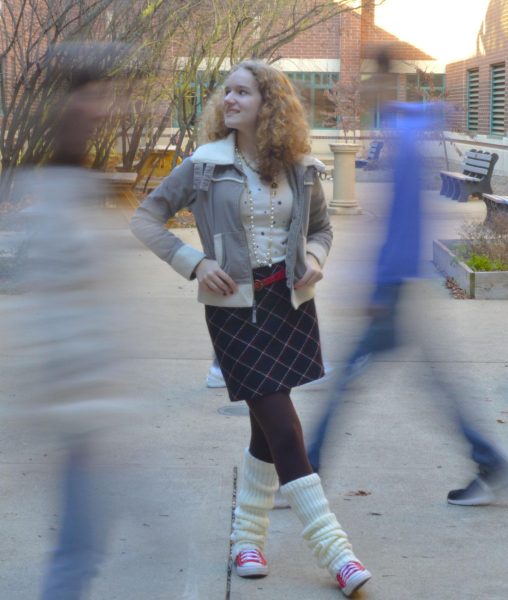‘Tis the season
NHS students share their experiences regarding seasonal depression and its’ effects
Photo by Photo by S. McLaughlin
Junior Alexa Menchaca has been suffering from seasonal affective disorder since her freshman year.
March 14, 2017
Most of us know about or experience that second semester “dip.” You’re tired, you don’t want to work and the end of the school year is in sight. What most people don’t know is that this could be due to the calendar.
According to Mental Health America, a leading organization in mental health support, recovery and advocacy, seasonal affective disorder, or SAD, commonly known as seasonal depression, is a type of depression caused by an increase in melatonin, the chemical that makes you tired, and a decrease in serotonin, the chemical that makes you happy. These variations often happen during the winter months due to the lack of sunlight.
Junior Alexa Menchaca has been experiencing seasonal depression for many years, typically around January, when the holidays are over.
“Last year is when I recognized I was depressed only during the winter,” Menchaca said.
She believes that this disorder affects her school work more than anything.
“I notice my motivation and effort start to slack more and my homework becomes more of a struggle than just a task,” Menchaca said.
Sociology teacher Stephanie Gilbert notices this drop in grades across the board at the beginning of the second semester in her classes.
“There’s a second semester sort of a dip [in grades] that you always think is just maybe that they see the end of the year in sight,” Gilbert said.
NHS psychologist Jamie Johnson can attest to this.
“There is often is a correlation with slipping grades and depression symptoms as the symptoms often include a reduced interest in activities, which sometimes looks like no motivation to complete work for classes,” Johnson said.
Senior Connor Mills is also a victim of seasonal depression. Along with Menchaca, he believes that his school tasks become harder to deal with during the winter months.
“I feel like it affects my school work,” Mills said. “I’m just not as motivated. I feel fatigued and not willing to do much.”
Although Gilbert isn’t sure if there is a direct correlation between a drop in grades and class participation during this time of the year, she does notice a slight change in attitude among some of her students.
“As teachers you see [lack of engagement] all during the year. People have issues with things at home, with friends,” Gilbert said. “[Seasonally], it’s more the engagement part and maybe starting to not turn things in.”
Senior Zach Perkins is also a sufferer of seasonal affective disorder. He notices his own lack of engagement in class. He says it’s as obvious as a drop in his grades.
“I’ll just sit in class and time will kind of fly, and I wouldn’t have learned anything,” Perkins said.
Perkins says his grades drop during this time of the year due to his decrease in energy and motivation.
“I just don’t have the energy for homework. My mind will not be in anything I’m doing,” Perkins said. “I just come to school, go through the motions.”
Mills believes that his seasonal depression has a lot to do with his lack of winter activities.
“I play golf. In the wintertime, obviously, I can’t play golf,” Mills said. “It takes away my number one hobby.”
Unlike Mills, Perkins’ hobby is one of his main coping mechanisms.
“I like to distract myself with other stuff like wrestling,” Perkins said. “After weights or a good workout, it’ll give me maybe an hour or two where I’m not worried about anything.”
Despite being unable to participate in his favorite pastime during the winter months, Mills still finds different ways to cope with his depression.
“Lately I’ve been trying to work out…and that kind of helps me feel better about myself and be motivated,” Mills said.
Menchaca agrees. She says that one of the only things that keeps her going during the winter is physical activity.
“It helps to work out because it makes me feel energized and more willing to work,” Menchaca said.
According to Johnson, one of the best ways to cope with seasonal depression is to get outside and exercise.
“Exercise is a big [coping strategy] with seasonal affective,” Johnson said. “Anything that will kind of get the body up and moving and feeling a little bit more itself.”
According to Johnson, seeing a therapist can also be highly beneficial. Menchaca, who attends therapy on a regular basis, says there are many positive outcomes from her sessions.
“I do go to a therapist regularly to help keep myself upbeat and on task,” Menchaca said.
Johnson works with students who have depression on a daily basis, and she claims that seasonal depression and generalized depression can go hand in hand.
“[The symptoms of seasonal depression] are really similar to the signs of depression,” Johnson said. “Loss of appetite, just kind of feeling down, feeling more sleepy, loss of interest in things.”
When the sun begins to come out more during the springtime is when seasonal depression usually begins to lessen.
“I kind of snap out of it early March,” Mills said. “It’s when the weather starts to change a little bit and the [golf] season starts up.”


